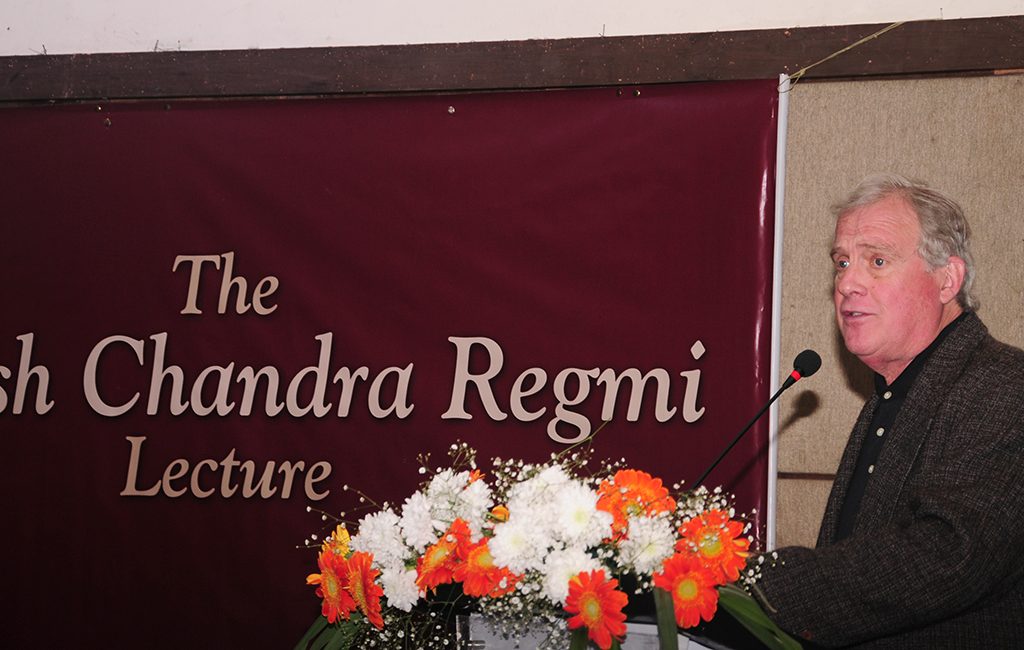Lecture Series
Ethnography, History, Culture Enduring Oppositions and Creative Dynamism in Nepal

The Mahesh Chandra Regmi Lecture 2017
11 December 2017, Kumari Hall, Hotel Annapurna, Durbarmarg, Kathmandu
Ethnography, History, Culture: Enduring Oppositions and Creative Dynamism in Nepal
by David Holmberg
This lecture recapitulates key transformations in western Tamang social and cultural life over the last 50 years. It approaches the question of ‘culture’ and the place of culture in anthropological theorising in the frame of social activism, and views new cultural activism as a direct consequence of the productive capacity of the Tamang in new socio-political contexts. Tamang, historically at the peripheries, are now a dynamic presence in an emerging new configuration of interethnic relations in Nepal. The impossible hope of the Panchayat era to produce, through deculturation, a monolingual, homogenous Nepali culture and society has antithetically produced an as-yet-unresolved counter demand for state recognition of cultural difference by Adivasi Janajati communities in Nepal. While older Tamang villagers lament the demise of the forms of culture they inherited from their past, young people, in an entirely new experiential and communicative environment, are creating new ontologies and producing new forms of cultural distinctiveness that reflect existential realities in contemporary Nepal. Cultural oppositions endure in a world of new political possibilities and new forms of communication, all within an expanding and levelling consumerist economy.
Listen or download lecture in audio format
Professor Emeritus of Anthropology at Cornell University in New York, David Holmberg has been synonymous with anthropological research with the Tamangs in Nepal since the mid-1970s. In an illustrious academic career spanning decades, several generations of Nepal-focused scholars were privileged to be trained by him. He maintains close ties with academic institutions in Nepal, the most significant being the Cornell Nepal Study Program (CNSP) in collaboration with Tribhuvan University, Nepal, initiated in 1993. He also chaired the Department of Anthropology at Cornell University from 1990 to 1997, then again from 2001 to 2008.
Professor Holmberg’s areas of interest include ritual syncretism or hybridity: the relations among Buddhist, shamanic, and sacrificial practices, conceptions of power, state system of forced labor, and history of anthropology of the Himalayas to name a few. His major publications include (with Kathryn S. March, Surya Man Tamang and Bhim Bahadur Tamang) Mutual Regards: America and Nepal Seen through Each Other’s Eyes (Kathmandu: Jeevan Support Printing Press, 1994) and Order in Paradox: Myth, Ritual and Exchange among Nepal’s Tamang (Ithaca: Cornell University Press, 1989). He is currently in the midst of writing a book, Extractive Labor/Productive Ritual based on reconstructing the nature of a state system of forced labour through the memories of villagers and through archival evidence. His most recent appointment was to the Mario Einaudi Center for International Studies at Cornell University as the Fulbright adviser.
